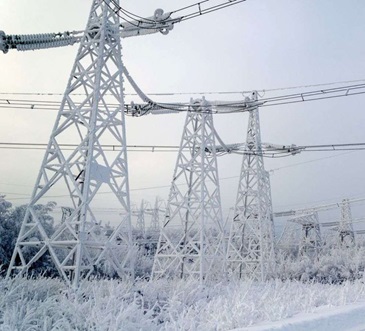FRANKFORT, KY – A recent article by Canary Media highlights pressing issues facing the U.S. power grid, emphasizing the need for expanded transmission infrastructure to meet surging electricity demand. Dependable Power First Kentucky agrees that a modernized grid is essential, but this framing tells only part of the story.
Missing from the discussion are the need for dispatchable generation, the reliability challenges associated with wind and solar facilities, and the enormous cost of new electricity sources and additional electric transmission.
The Canary Media article describes a backlog of nearly 2,600 gigawatts of proposed solar, wind, and battery projects awaiting interconnection. These backlogged projects total twice the size of the existing U.S. power supply. But even if all these projects were completed tomorrow — as the author notes, since 2000 less than one-fifth of all projects requesting grid interconnection have been completed for various reasons — they would not ensure electric reliability and affordability.
Unlike coal and natural gas power plants, which provide consistent, dependable electricity and can ramp up generation to meet demand spikes, especially during periods of extreme weather, solar and wind are inherently intermittent. This means that they generate power only when the sun shines or the wind blows at just the right speed, leaving gaps in power supply not just during storms but also on calm nights and cloudy days. In addition, new, expensive long-distance transmission lines are an unrealistic and expensive solution to load growth challenges. Estimates of the cost of new power lines run in the tens of billions of dollars. For example, one of the largest grid operators in the U.S. has estimated that new power lines will cost more than $20 billion over the next few years. And there are estimates that new power lines could cost as much as $690 billion by mid-century.
A simple step to prevent power shortages is to stop shutting down existing power plants that are a dependable source of electricity. As the Canary Media article acknowledges, utilities are already delaying coal plant retirements to handle growing electricity demand despite repeated attempts by the federal government to shut them down through aggressive regulations. Avoiding power plant retirements is a sensible response to warnings from the North American Electric Reliability Corporation (NERC), the Federal Energy Regulatory Commission (FERC), grid operators, and state utility commissioners that dependable and dispatchable resources like coal and natural gas are needed to ensure grid reliability, particularly as power demand accelerates. Rather than rushing to replace these dependable sources, we should recognize their value in maintaining the grid’s reliability and powering emerging industries and technologies.
Building new transmission lines and adding renewable energy projects sounds like an easy solution. But beyond the issue of reliability, this overlooks the costs associated with maintaining a reliable grid. Massive investments in the grid upgrades the article describes would cost billions and inevitably raise electricity prices for consumers. Meanwhile, existing coal and natural gas plants provide affordable and dependable power, ensuring that Kentuckians do not face the risk of skyrocketing energy bills. Policies that would drive up costs without delivering reliability by seeking to replace these sources with intermittent renewables are expensive and irresponsible.
The challenges facing the U.S. power grid require a balanced approach. Expanding transmission infrastructure to accommodate renewable energy is a small piece of the puzzle, but it is not the whole picture. If we want the United States and Kentucky to remain economically competitive, we must rely on electricity sources that are affordable and reliable.
The article by Canary Media does rightfully note that rising demand impacts every part of the grid. But meeting that demand requires addressing more than just transmission bottlenecks. It requires a commitment to keeping all energy options on the table, ensuring reliability, affordability, and long-term security for Kentuckians and all Americans. That is why Dependable Power First Kentucky will continue advocating for policies that protect our economy and quality of life.
# # #
Dependable Power First Kentucky works to promote a reliable, resilient, and affordable electricity supply for all Kentuckians by bringing together diverse stakeholders from across the state to shift the conversation around reliability and support policies that achieve this goal. For more information, please visit www.dependablepowerky.com.












